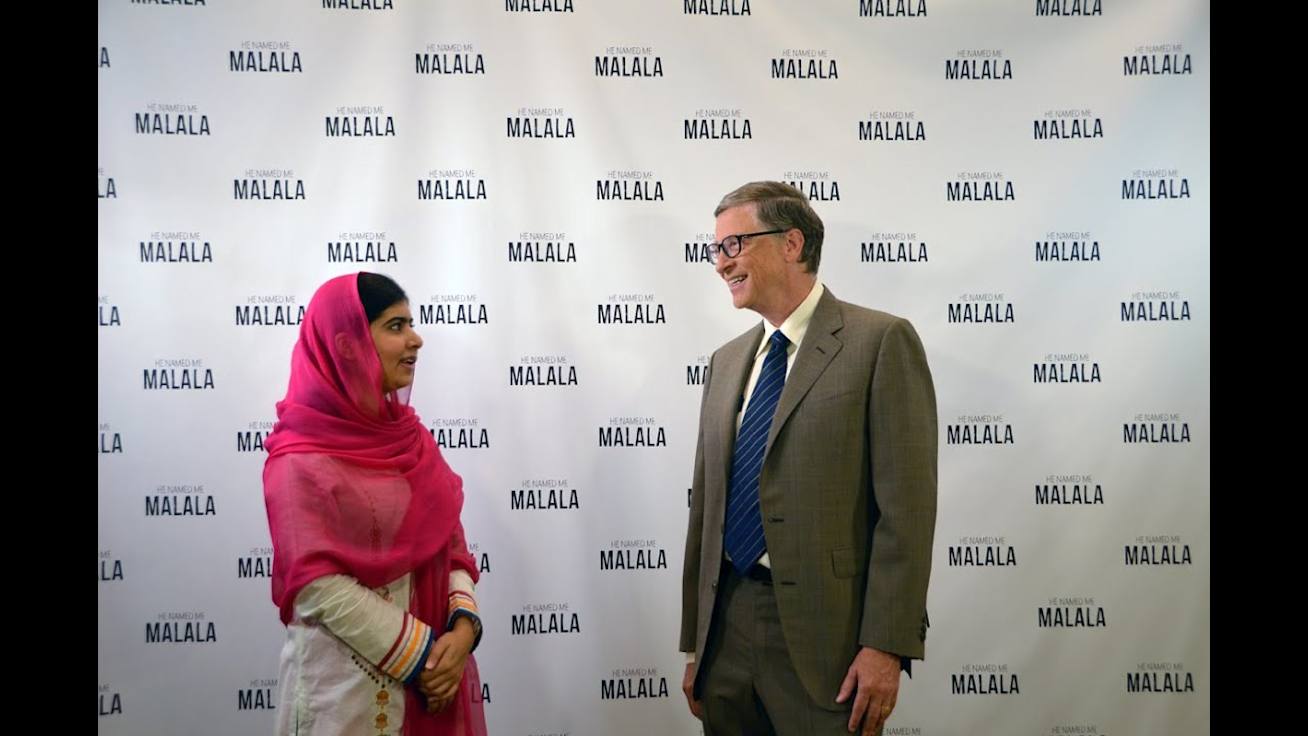A Girl’s Effect
Meeting Malala
My conversation with the Nobel Prize winner about her amazing work.

Two weeks ago, I had a big honor. I got to spend some time in New York with Malala Yousafzai, one of the most courageous people I’ve ever met.
As I’m sure you know, Malala is the Pakistani teenager who was shot by a Talib gunman for her belief that all girls should be able to go to school. After meeting her, I can tell you that there is much more to Malala than the story of a brutal shooting and a miraculous recovery. She’s a really impressive person and a compelling, sophisticated advocate. I loved chatting with her and just wish the conversation could have gone on longer.
Even though she nearly died, will have lifelong physical challenges, and is living in exile in England, she harbors no ill will toward the man who shot her. Rather than dwelling in a place of anger or fear, she’s sweet and funny. And even more impressive, she has managed to keep her feet on the ground despite the rush of attention she has gotten since she became the youngest Nobel laureate in history and, as New York Times columnist Nick Kristof wrote, “perhaps the most visible teenage girl in the world.”
That humility is a good thing because her visibility is about to increase yet again. The Academy Award–winning filmmaker Davis Guggenheim, who spent the better part of a year living and traveling with Malala and her family, has just released his feature-length documentary He Named Me Malala. (Full disclosure: Davis Guggenheim is a friend of mine.)
I recently had a chance to see the movie with Phoebe, my 13-year-old daughter, and a friend of hers. I thought the movie was great. And so did Phoebe. She was truly inspired by Malala and her mission to make sure all girls can get a high-quality education. Keep in mind that Phoebe is already quite connected with the issue of girls’ education, in part because she got to spend ten days last summer as an assistant teacher in a primary school in Rwanda. But I believe that most people her age and older who see this movie will be compelled by the story and how well Davis tells it.
I loved how we see Malala flying around the world defending life, liberty, and the pursuit of education one day and the next being a normal teenager struggling with homework and her brothers. I also loved the visually stunning animated sequences that bring the backstory to life.
I was most compelled by the film’s exploration of how Malala’s father, Ziauddin, encouraged his daughter to find her voice and speak out with courage, as he wished he could have done earlier in his own life. Malala made it clear in the movie and in my conversation with her that she does not believe her father pushed her onto her life path or put her in harm’s way. But I suspect the movie will spark a lot of provocative conversations among parents about risk-taking, moral courage, and how we shape our children to stand up for what’s right.
I’m quite sure that most moviegoers will leave the theater feeling far more hope than grief—just like Malala herself. And they’ll probably ask the same question Phoebe asked me: “How can I help?”
I think Davis accomplished exactly what he set out to do. Despite having to overcome the “spoiler-alert” challenge of telling a story whose ending we already know, he grabs us by the lapels and motivates us to act. Personally, I’ll be looking for ways our foundation can help Malala use that magnificent voice of hers to the best possible effect.



